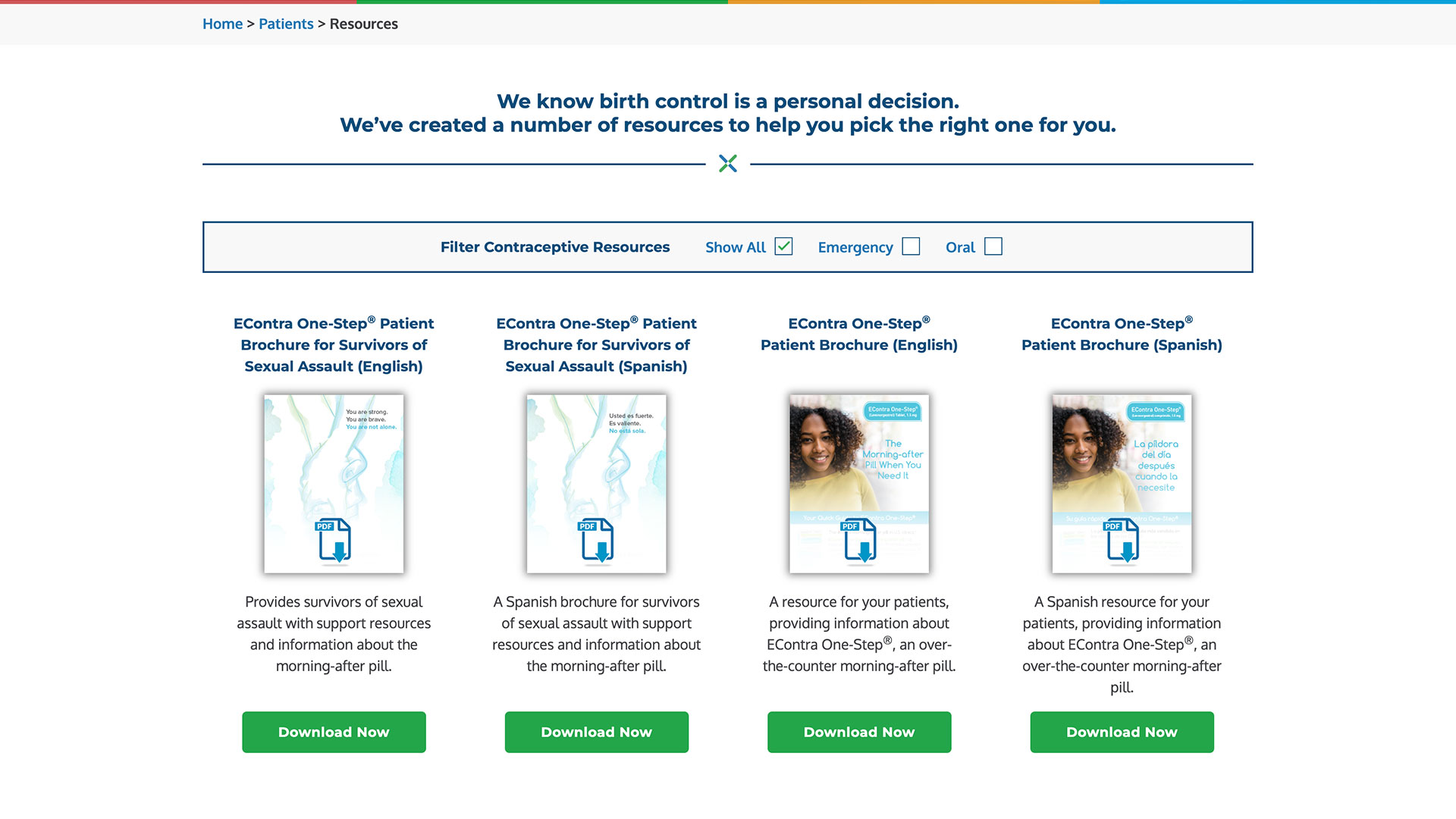The Importance of Personalization in Creating Impactful Patient-Focused Web Presences
Pharmaceutical companies can do more to integrate personalized content throughout the patient journey.
The patient journey is never linear. As pharmaceutical companies continue to preach the patient-first approach to online marketing, it seems many are failing to deliver the level of content personalization that patients need or expect.
According to a survey by McKinsey & Co., the majority of consumers are interested in using digital tools to support their healthcare and their relationships with providers. However, online content is most likely to have an impact when it is personalized to the consumer.

What does patient personalization mean when it comes to digital marketing for pharmaceutical brands?
Forward-thinking pharma companies are using patient-focused websites and mobile apps as a way to provide information and resources to support the health and wellbeing of people with certain medical conditions.
Having a strong web presence is table stakes for any pharmaceutical brand that hopes to compete in today’s complex digital landscape. Developing and maintaining an impactful patient-focused website is critical in delivering the brand promise to patients, to build trust and generate conversions. Companies are relying on pharma marketing agencies like EsperienzaRx for complete website development, including research, user-experience, writing, design, and onsite engagement.
The most engaging websites include a variety of content modules, including educational resources, interactive quizzes, polls, and access to healthcare professionals. Some additional elements include:
- Patient support resources: To increase engagement, websites should offer resources such as patient support programs, medication adherence tools, and health resources to help patients better manage their health.
- Personalized experiences: Using personalization, pharmaceutical marketers can tailor a website experience to each patient’s needs and preferences, providing them with relevant information and resources that are specific to their condition and treatment.
- Interactive tools: Websites with interactive tools, such as symptom checkers, risk assessments, and decision making quizzes help patients make informed decisions about their health and generally achieve much higher levels of engagement. The more stickiness a marketer can add to a web property, the more patients will continue coming back.
- Community resources: Pharmaceutical brands can create communities or forums for patients to connect with each other, share experiences, and provide support.
- Information on related health conditions: Patient-focused websites should provide information on various health conditions and treatments, including the use of specific medications. This information should be written in a language that is easy for the layperson to understand and accessible to all patients.
- Medication safety information: The patient-focused website should include detailed information on the safety and potential side effects of specific medications, along with tips on how to manage those concerns.
- Access to healthcare professionals: Pharmaceutical brands should offer patients the ability to connect with local healthcare professionals, such as pharmacists or nurse practitioners, for additional support.

Taking the Patient Experience to the Next Level
The first days and weeks following a patient’s diagnosis is a crucial time to ensure they get their treatments. Pharma companies have a role to play in helping patients get started by providing the right support and educational materials.
Search for virtually any medical condition on Google, and you’re likely to find thousands, if not hundreds of thousands, of search results. How can a pharmaceutical brand cut through the online noise to provide patients with real value?
Personalization.
Personalization is the key to breaking through online in 2023. With the increasing use of technology in healthcare, it is essential for pharmaceutical brands to engage with patients through personalized digital experiences.
According to a report by Salesforce, 94% of marketers say consumers today expect personalized brand experiences, and 86% say personalization has a strong or extremely strong impact on customer relationships. Within the pharmaceutical industry, specifically, personalized web content allows companies to provide a unique experience to each patient. By tailoring their interactions and messages to meet specific needs and preferences, pharmaceutical brands can build stronger relationships and increase patient engagement.

Implementing Personalization
Implementing personalization with a patient-first approach requires listening to patient communities and not just assuming you know how to help. It involves looking at the most important aspects of what you need to have in mind to build a strong web presence, and then bringing in the right pharmaceutical marketing team to turn that vision into a reality. Client-centered pharmaceutical marketing agencies like EsperienzaRx are agile, with the resources to develop effective patient-focused websites for their clients.
Smaller brands have the opportunity to remain relevant and competent, within budget, with the highly-targeted, personalized approach to marketing. For example, pharmaceutical brands can use personalization to create web properties and social media pages that reach specific patient groups with relevant health information. This can include educational resources on health conditions, treatments, and lifestyle changes specific to a patient’s needs.
As they cultivate these resources, pharma marketers should be asking themselves what patients are looking for. When a patient is standing in line at the pharmacy or sitting in the waiting room at a physician’s office, what are they most likely to be searching for on their mobile phone? What questions are patients asking their doctors? These are the moments when pharma marketers have the best opportunity to educate and provide answers to those questions, so patients have better dialogues with their providers.

Pharmaceutical brands have an opportunity to be more thorough in their mobile presence. Patients searching for information about their conditions in between appointments or while standing in the pharmacy line are almost always using smartphones. This means a brand’s online experience needs to be just as seamless on a mobile device as it is on a desktop. Having a mobile-first design mentality will make it easier for patients to access real-time answers to questions that have about their conditions or their treatment options.
Experts agree that engagement has become the most important metric to track in Google Analytics. Bounce rates have become less relevant in 2023. Having a high engagement level, based on how much time patients are spending on a brand’s web presence, signals that a site’s content is relevant. Having a high engagement rate leads to ranking higher in search engine results.
For more details on how engagement rates influence search results, watch Driving Brand Awareness Through Patient Focused Web Presences, a webinar from EsperienzaRx.
The Personal Touch
It’s not just about landing pages and quizzes. Adding a personal touch to other communication channels can go a long way in creating impact and fostering loyalty among patients. For example, addressing patients by name in digital communications is a simple way to personalize the online experience.
Using a website visitor’s IP address to identify their approximate geographic location is another option for marketers that want to customize content automatically and share the most relevant services to patients online.
Personalization is a critical aspect of creating effective patient-focused web presences. By providing personalized experiences to patients, healthcare organizations can build stronger relationships, improve patient satisfaction, and provide relevant and timely information that supports better health outcomes.
With the rise of technology in healthcare, personalization is more important than ever and should be a key consideration for organizations looking to create impactful and effective digital experiences for their patients.
To learn more about the importance of personalization in creating impactful patient-focused web presences, watch this webinar from EsperienzaRx, where experts share the most creative content and best practices that make pharma marketing compelling to patients